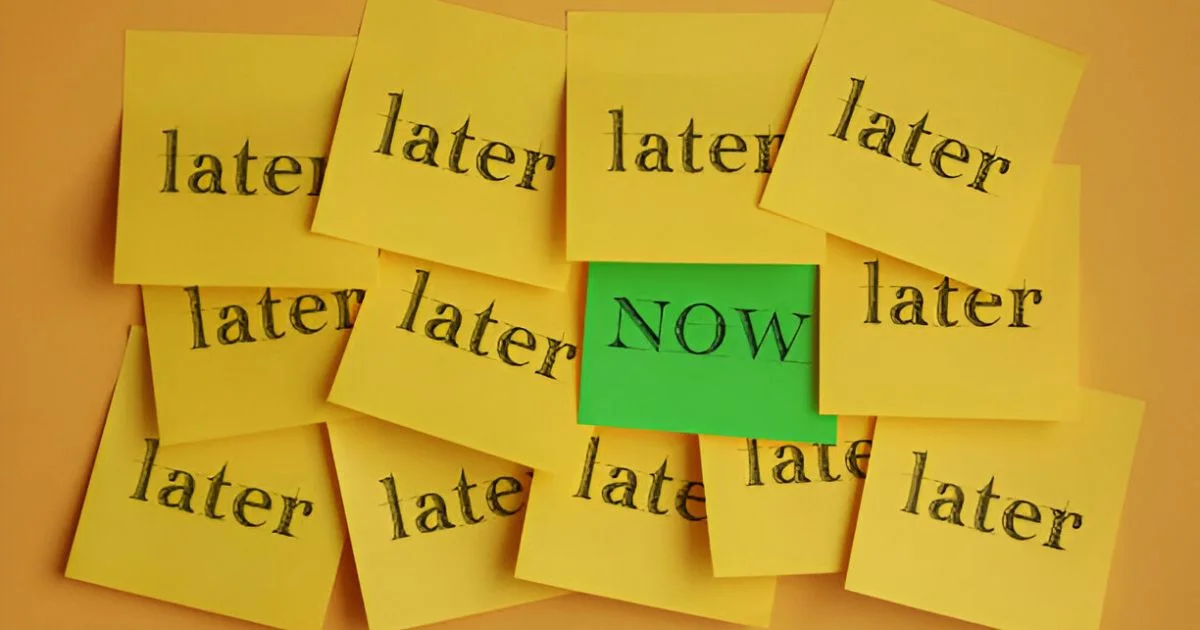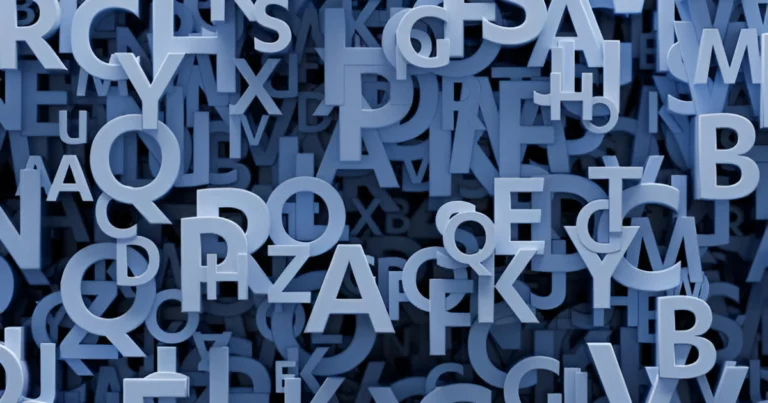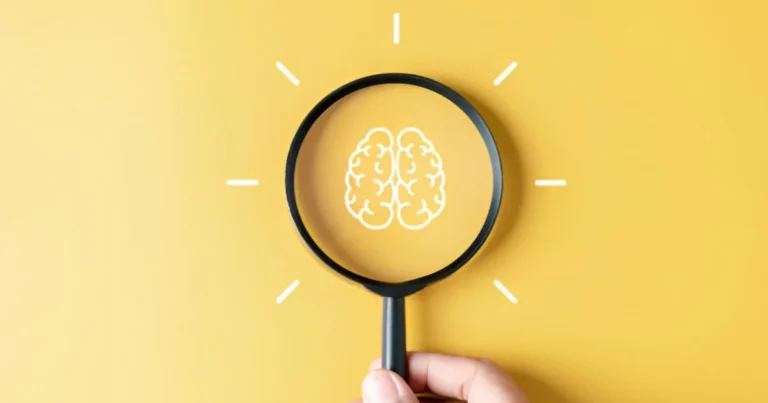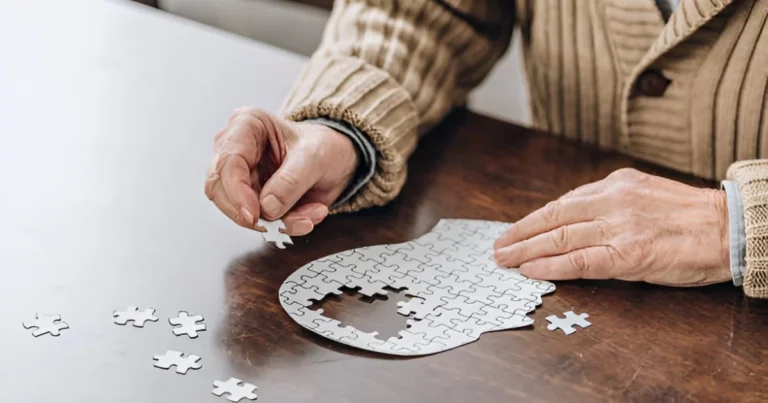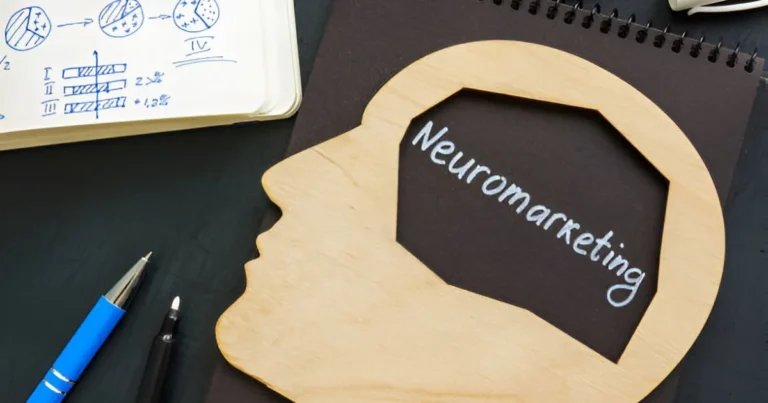Procrastination: The inner battle that shapes our actions
Time slips away, elusive. The task at hand patiently waits, yet we find countless ways to avoid it. A coffee break, a trivial video, compulsively checking emails, an illusion of movement that masks inaction. But why do we delay so many things, sometimes at the expense of our own peace of mind? Is procrastination merely a quirk of the brain, or does it reveal a deeper flaw in our ability to prioritize?
If procrastination had a face, it would undoubtedly be that of Oblomov. The tragic and indolent hero of Ivan Goncharov’s novel spends his days reclining on a sofa, postponing every decision, every action, until the world moves forward without him. His name even gave rise to the term “Oblomovism”, a paralysis of action where the dream of an ideal life eventually replaces any attempt to build it. A caricature? Perhaps not. This character holds up a mirror to our own hesitations, where the comfort of the status quo often outweighs the effort required for change.
For centuries, procrastination was seen as a moral failing, a character flaw to be corrected. However, cognitive neuroscience now offers a radically different perspective. Behind this seemingly irrational behavior lies a complex interplay of inhibition, emotional regulation, impulsivity, and anticipation of consequences. Procrastination is not merely about “wasting time”; rather, it reflects how each individual perceives effort and time itself.
Why we all seem to be delaying more than ever
Studies by Joseph R. Ferrari and Judith Harriott, as well as Piers Steel, have shown that between 15% and 20% of the U.S. population suffers from chronic procrastination, while this figure skyrockets to between 50% and 95% among university students. A behavior so widespread cannot be a mere neurological anomaly; there must be a deeper reason for its entrenchment in our daily lives.
Research has revealed that procrastination is partially linked to an imbalance in dopamine, a key neurotransmitter in brain function. Dopamine plays a crucial role in motivation and reward, driving us to act by providing a sense of satisfaction when we make progress toward a goal. Its influence is particularly strong in the striatum, a brain region involved in decision-making and action planning. When this system is disrupted, the motivation signal becomes blurred, making even the simplest tasks feel like uphill battles. This effect is especially pronounced when immediate effort does not seem to offer tangible rewards. This explains why procrastinators struggle to initiate tasks perceived as difficult or tedious, preferring short-term distractions that feel far more gratifying to the brain.
But dopamine does not act alone. The amygdala, a small almond-shaped structure in the brain, plays a crucial role in processing emotions, particularly in response to stress and anxiety. In procrastinators, the amygdala is often more active, amplifying negative perceptions of tasks that seem challenging or unpleasant. This heightened response triggers an avoidance reflex: rather than facing discomfort, the brain seeks to divert attention toward a more immediately rewarding activity. While this provides temporary relief, it fuels a vicious cycle, inaction leads to guilt and additional stress, making it even harder to start the original task. Thus, procrastination is not merely a lack of willpower but rather a complex interaction between emotional regulation and deeply ingrained survival mechanisms.
Impulsivity vs. Discipline: The hidden forces behind procrastination
Procrastination is an internal struggle between two opposing forces: impulsivity, which drives us to seek immediate gratification, and self-regulation, which encourages us to delay pleasure in pursuit of greater long-term rewards. This conflict, rooted in our biology, explains why we often feel torn between what we know we should do and what we would rather do in the moment.
One of the most well-known illustrations of this struggle is the marshmallow experiment conducted by psychologist Walter Mischel in the 1960s. Children were presented with a simple choice: eat one marshmallow immediately or wait fifteen minutes to receive a second one. The study found that those who managed to delay gratification later exhibited better stress management, higher academic achievement, and a greater ability to reach their goals. This experiment sheds light on a fundamental aspect of procrastination. Some individuals, much like the children who quickly succumbed to temptation, are more prone to prioritizing immediate rewards at the expense of their long-term objectives.
From a neurocognitive perspective, this tendency is directly linked to activity in the dorsolateral prefrontal cortex (DLPFC), the brain region responsible for impulse control and long-term decision-making. In procrastinators, this area shows reduced activity, making it harder to exert patience and discipline. In this sense, procrastination can be seen as an adult version of the inability to resist the marshmallow. Faced with a tedious but necessary task, the procrastinating brain seeks a more immediately gratifying alternative, scrolling through a phone, watching a video, or engaging in another distraction. This explanation suggests that self-regulation can be strengthened, much like a muscle, through practice and gradual effort.
A study by Gareau et al. (2019) supports these observations. Procrastinators do not lack cognitive abilities; rather, they struggle to employ the right strategies to manage effort and discomfort. Instead of engaging with a task, they adopt avoidance behaviors that temporarily relieve their anxiety but ultimately hinder their long-term performance. This suggests that a procrastinating brain is not lazy, it is simply wired to prioritize immediate ease, often to its own detriment.
Beyond laziness: the deeper meaning of procrastination
Procrastination is neither a disease nor a character flaw. It reflects an ongoing tension between two competing forces within us: on one hand, our primitive brain, shaped by millennia of survival instincts, craving instant gratification; on the other, our rational brain, striving for ambitious plans and long-term goals. We exist in a constant tug-of-war between these two voices. Which one should we listen to? And more importantly, how can we prevent this internal debate from turning into paralysis?
Understanding the neurobiological foundations of procrastination is already a step toward mastering it. Several strategies can help override the brain’s avoidance mechanisms: breaking tasks into smaller, more manageable steps, minimizing distractions, scheduling strategic breaks, starting with short work sessions and gradually increasing their duration, and relying on external accountability to meet deadlines. However, the most crucial step is adopting a self-compassionate approach. Guilt and self-criticism only fuel the vicious cycle of procrastination, self-judgment exacerbates anxiety, which in turn strengthens avoidance, and the cycle repeats itself.
Ultimately, procrastination is far more than just postponing tasks. It offers a window into our internal dynamics, revealing our relationship with time, effort, and reward. We constantly oscillate between caution and boldness, fear of failure and desire for success, control and surrender. Rather than exhausting ourselves by fighting against our own instincts, we could embrace a more flexible approach, one that involves identifying our triggers, adjusting our expectations, and finding ways to make action more engaging.
After all, if procrastination is a response shaped by the brain, then perhaps the key is not to wage war against it but to transform it into a dialogue. And maybe learning to procrastinate less is simply a matter of training ourselves to wait for that second marshmallow. Because patience and self-regulation are not innate gifts but skills that develop over time, with practice, persistence, and, above all, self-awareness.
References
Harriott, J., & Ferrari, J. R. (1996). Prevalence of Procrastination among Samples of Adults. Psychological Reports, 78(2), 611-616.
Gareau, A., Chamandy, M., Kljajic, K., & Gaudreau, P. (2019). The detrimental effect of academic procrastination on subsequent grades: The mediating role of coping over and above past achievement and working memory capacity. Anxiety, Stress, & Coping, 32(2), 1-16.
Gustavson, D. E., Miyake, A., Hewitt, J. K., & Friedman, N. P. (2014). Genetic relations among procrastination, impulsivity, and goal-management ability: Implications for the evolutionary origins of procrastination. Psychological Science, 25(6), 1178-1188.
Shang, Z., Cao, Y., Cui, Z., & Zuo, C. (2023). Positive delay? The influence of perceived stress on active procrastination. South African Journal of Business Management, 54(1), 1-12.
Steel, P. (2007). The nature of procrastination: A meta-analytic and theoretical review of quintessential self-regulatory failure. Psychological Bulletin, 133(1), 65-94. https://doi.org/10.1037/0033-2909.133.1.65
Steel, P. (2010). The procrastination equation: How to stop putting things off and start getting stuff done. HarperCollins.
Wypych, M., Michałowski, J. M., Droździel, D., Borczykowska, M., Szczepanik, M., & Marchewka, A. (2019). Attenuated brain activity during error processing and punishment anticipation in procrastination – a monetary Go/No-go fMRI study. Scientific Reports, 9, 11492.
Zhang, W., Wang, X., & Feng, T. (2016). Identifying the neural substrates of procrastination: A resting-state fMRI study. Scientific Reports, 6, 33203.

